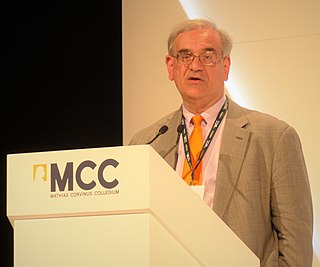A Quote by Chuka Umunna
Back in the 1980s parts of our country were devastated by de-industrialisation. This wave of globalisation and the first fruits of technological innovation destroyed industrial jobs or exported them to low-wage economies. The loss of work had a devastating impact.
Related Quotes
When the press writes scare stories about the global labor supply draining jobs from rich to poor places, the story is usually presented as a "race to the bottom" simply in terms of wages. Capitalism supposedly looks for labor wherever labor is cheapest. This story is half wrong. A kind of cultural selection is also at work, so that jobs leave high-wage countries like the United States and Germany, but migrate to low-wage economies with skilled, sometimes overqualified workers.
The Second World War had really devastating effects for much of Europe. It really didn't take them very long to reconstruct state capitalist democracies because it was in people's heads. There were other parts of the world that were pretty much devastated and they couldn't do it; they didn't have the conceptions in their mind. A lot of it is human consciousness.
When the industrial revolution happened there was the Luddistic movement, and there was a fear that machinery would replace all the labor. Whenever we had a technological revolution we had this fear. So if you look backwards, these fears were not justified, and I think they were driven by our very human inability to visualize what new jobs will be created by this new technology.
Industrial jobs are disappearing, and they will continue to disappear owing to productivity gains from automation. Thus, social models that were created to fit industrial and early service economies will no longer be viable. As the industrial workforce shrinks, the social model founded on it will go, too.
If you look at the beginning of this country, when the pilgrims came to this country, the first year they had a communistic experiment. They said, 'OK, we're going to take the land, we're going to work the land together and share in the fruits of our labor.' They almost starved to death. Almost half of them died that first year.































